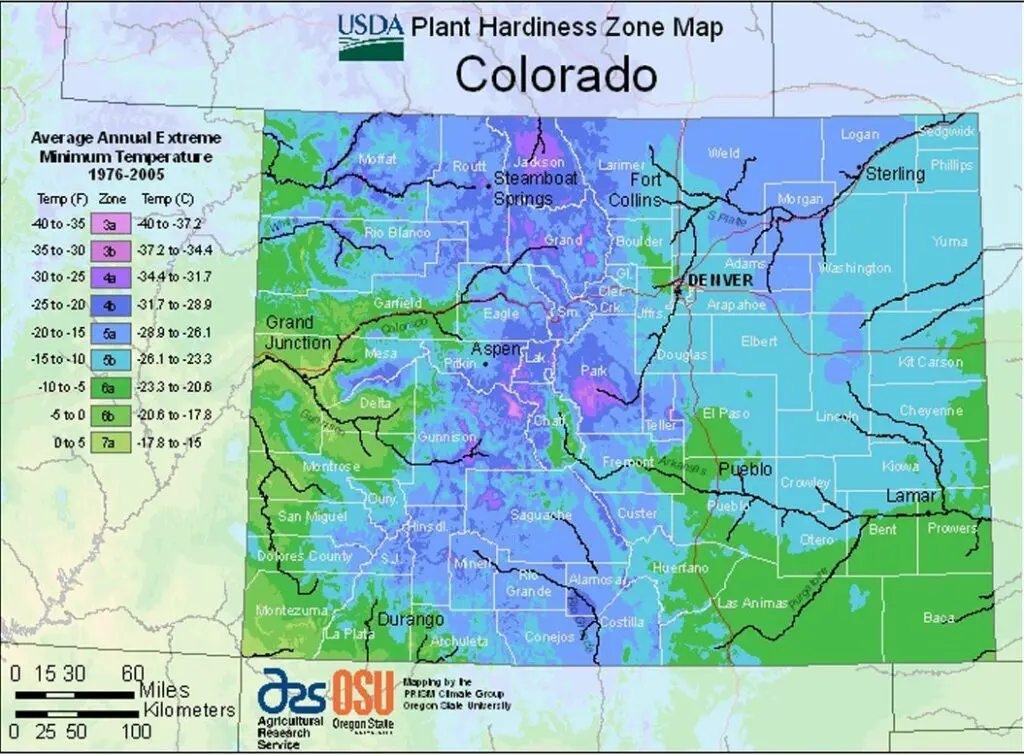
Denver Garden Prep: Start now for this year’s growing season
Denver Garden Prep in February | As winter’s chill lingers in Hardiness Zones 5a-6b, avid gardeners can prepare for the upcoming growing season. February may seem like an unlikely time to be active in the garden, but several essential tasks can set the stage for a successful and bountiful garden later in the year. In this guide, we’ll explore what you can do in your garden during February to ensure a flourishing space when spring arrives.
Indoor Seed Starting:
- February is the perfect time to kick-start your garden by starting seeds indoors. Begin with cold-hardy vegetables like kale, broccoli, and Brussels sprouts. These plants can be nurtured indoors until the threat of frost has passed, and they can be transplanted into your garden beds.
Soil Testing and Amendment:
- Test your garden soil to understand its composition and nutrient levels. This information is invaluable for planning amendments. Based on the results, you can add organic matter, compost, or specific fertilizers to improve soil health. This proactive step ensures your plants will have the necessary nutrients for robust growth.
Pruning and Maintenance:
- While your garden is still in its winter dormancy, take the time to prune deciduous trees and shrubs. Remove dead or damaged branches to encourage healthy growth in the spring. Additionally, clean up any debris or fallen leaves to reduce the risk of diseases.
Cold Frame or Greenhouse Preparation:
- If you have a cold frame or greenhouse, February is the time to prepare these spaces for the upcoming growing season. Clean and sterilize the interior, repair any damage, and ensure that the heating systems are functioning properly. This early preparation allows you to extend your growing season by providing a protected environment for delicate plants.
Planning and Organization:
- Spend time in February planning your garden layout for the year. Consider crop rotation, companion planting, and succession planting strategies. Make a list of the vegetables, herbs, and flowers you want to grow, and create a planting schedule based on your local frost dates.
Protecting Perennials:
- If you have perennial plants in your garden, add a layer of mulch around them to protect the roots from extreme temperature fluctuations. This layer acts as insulation, preventing the soil from freezing and thawing rapidly, which can harm plant roots.
Tool Maintenance:
- Inspect and clean your gardening tools, such as pruners, shovels, and hoes. Sharpen blades, tighten loose parts, and replace any tools that are beyond repair. Well-maintained tools make gardening tasks more efficient and enjoyable.
Compost Management:
- Check your compost pile and turn it to promote decomposition. If you don’t already compost, February is an excellent time to start. Composting not only reduces waste but also provides nutrient-rich organic matter for your garden.
Conclusion:
Denver February Garden Prep | As February unfolds in the Denver, Colorado area (Hardiness Zones 5a-6b), optimizing your garden for the local environment becomes crucial for a successful growing season. Embrace the opportunity to enhance your garden specifically for the local climate during the final weeks of winter. Each proactive step taken in this direction brings you closer to establishing a flourishing oasis in the spring, optimized for the specific needs of Denver’s local flora and fauna.
